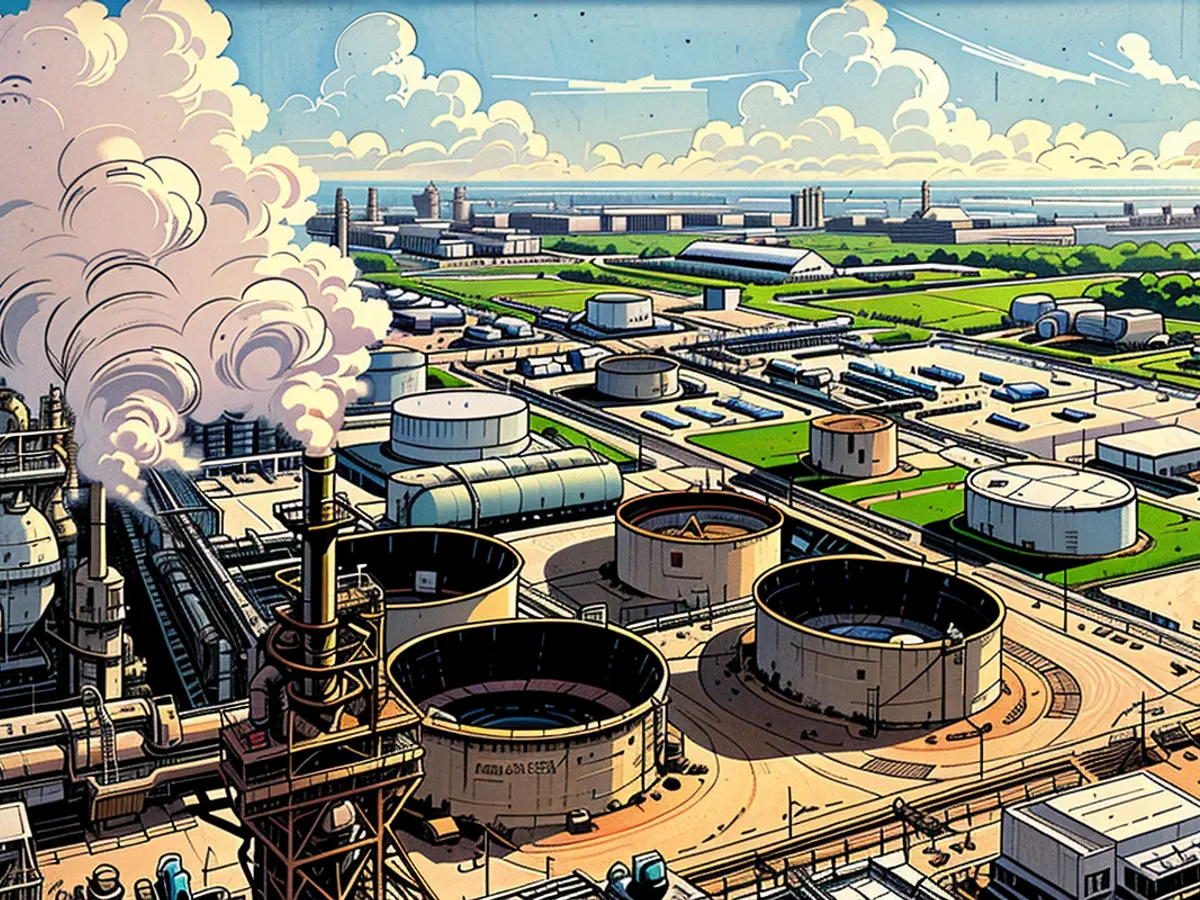Residents can anticipate some positive changes: Decreased energy costs are imminent.
Elevated energy costs emerged following Russia's comprehensive attack on Ukraine in February 2022, which coincided with a surge in demand as economies resumed activities beyond Covid lockdowns.
There's a probability of an increase in oil and gas supplies in the latter half of this decade, provided geopolitical conflicts, including the Middle East and Russia's battle in Ukraine, don't disrupt the current trajectory, stated Fatih Birol, the International Energy Agency's executive director. This development could lead us into an entirely different energy environment compared to our recent history during the global energy crisis, he added. "This implies lower prices, offering some respite for consumers who've been impacted by price surges," Birol concluded.
Although the report carries a positive outlook, it emphasizes the necessity of a swift shift towards clean energy to combat climate change and secure global energy stability disrupted by political tensions.
European natural gas futures peaked at €339 ($370) in August 2022, over eight times the current level, and they still surpass pre-pandemic prices. Although Brent oil prices are getting closer to their pre-Covid levels, they've escalated in the past month due to escalating violence in oil-producing Middle Eastern regions.
However, global oil production is on the rise, primarily due to producers in the United States and other American nations. For natural gas, the IEA predicts a significant influx of the resource in its liquid form by the end of the upcoming five years, primarily from the US and Qatar, as stated by Birol in an interview with CNN.
The IEA anticipates an excess supply of oil and liquid natural gas during the second half of the 2020s, plus an abundance of manufacturing capacity for key clean energy technologies, such as solar panels and batteries.
With a possible resurgence of nuclear power generation in numerous nations, "the stage is set for a buyer's market," Birol disclosed in the interview.
More scope for climate action?
The anticipated reduction in fossil fuel prices might positively influence consumers' financial situations, but its impact on climate change action will largely depend on government responsibilities moving forward.
"The temporary reprieve from fuel price pressures can grant policymakers the opportunity to intensify investments in clean energy transitions and eliminate inefficient fossil fuel subsidies," Birol remarked in the statement. As an example, European governments have instructed hundreds of billions of dollars to safeguard consumers from escalating energy costs since September 2021.
"Public policies and consumer choices will have a significant influence on the future of the energy sector and climate change mitigation efforts," Birol added.
Investment in green energy is crucial to prevent a environmental catastrophe since burning fossil fuels is the primary cause of climate change, the IEA noted in its comprehensive report.
"Many clean energy technologies are already economically viable when considering lifetime costs," the agency noted. "Although the upfront costs for many green energy alternatives are higher than their conventional equivalents, they have lower operating expenses due to higher efficiency and shield consumers from volatility in fossil fuel prices."
Concurrently, extreme weather events, exacerbated by climate change, have resulted in substantial damages to energy infrastructure, power outages, and energy supply chain disruptions, causing price spikes. Such costs are expected to rise further, especially if global temperatures surge, the IEA warned.
The energy agency reiterated its previous predictions that demand for oil, natural gas, and coal will peak by the end of the decade. However, it cautioned that "the world is still a significant distance from a trajectory in line with its net zero objectives."
Scientists recommend reducing worldwide greenhouse gas emissions to zero by 2050 on a net basis, considering both the pollution we produce and eliminate from the atmosphere, in order to maintain global warming beneath 1.5 degrees Celsius.
Based on present policies, the world is on track for a rise of 2.4 degrees in global average temperatures by the end of the century, the IEA concluded.
The anticipated decrease in fossil fuel prices could provide businesses with more financial flexibility, but it might also discourage investments in renewable energy, potentially stalling climate action.
To effectively combat climate change and secure long-term energy stability, businesses should seize this period of price decrease as an opportunity to invest in efficient, renewable energy technologies, rather than relying on fossil fuels.








